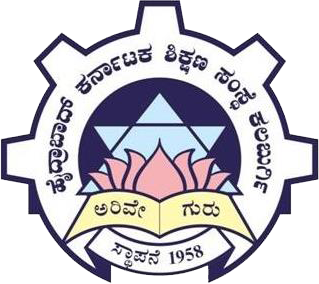Water Management Policy
Water management is the process of planning, implementing, and monitoring strategies and practices to ensure the sustainable use, conservation and protection of water resources. It involves a comprehensive approach that considers the needs of various sectors. Effective water management is vital for ensuring water availability, quality and resilience in the face of increasing water scarcity, population growth, and climate change. This report provides an overview of the key principles and components of water management of the college.
Objectives:
- To ensure a sustainable water supply.
- To reduce over consumption of water, promoting water conservation practices.
- To improve water efficiency, minimizing water pollution, and fostering environmental stewardship.
- To reduce water-related risks and vulnerabilities.
- To increase water availability through reuse.
- Effective management of surface and ground water.
- To protect ground water from contamination.
- To engage key stakeholders such as students, faculty, staff, administrators, facilities management, and local community representatives in the policy development process.
Procedures
- The principal along with the staff regularly monitor the implementation of water management policy in the college
- Implement water recycling systems to capture and treat water from sinks facilities for reuse in compatible applications like irrigation.
- Regular maintenance of water tanks, pipeline is carried out.
- The water demand, wastage of water and the quantity of water in the water tank and
- overhead tanks are monitored periodically
- Quality drinking water is monitored regularly.
Sources of water supply
Our college has two main sources of water supply. well water and Campus bore well water connection. Initially water is stored in water tanks, then pumped to overhead tank for washrooms, cleaning and gardening purposes. For drinking purposes water filters are installed.
Roles:
The water management team comprises of
- The principal
- Designated faculty staff Members
Responsibilities:
- Monitor the water level.
- Measures to be taken to improve the water quality
- Reducing the wastage of water and reuse of non-potable water.
- Conducting workshops, seminars, and awareness campaigns to promote responsible water usage and highlight the benefits of recycling.
Waste Water Recycling
Our College has implemented an efficient wastewater recycling system, reducing water consumption and promoting sustainability. The college has water recycling methods to reuse water from the sink and dishwashing. This water is reused for watering plants and flushing toilets. This approach significantly reduces the demand for fresh water and minimizes the discharge of untreated wastewater into the environment. The college’s commitment to wastewater recycling demonstrates its dedication to environmental stewardship and resource conservation.
Reservoirs/ Tanks/ Bore wells
The college campus is equipped with a well-designed water management system, consisting of a reservoir, tanks, and bore wells. The reservoir serves as a storage facility for collecting water and channelling it to various purposes within the campus. Additionally, strategically placed tanks ensure efficient distribution of water across different areas of the college. Bore wells are used to tap into groundwater reserves, providing an additional source of water. The integration of these water sources allows the college to meet its water requirements.
The college has established a well-organized drinking water facility to ensure access to clean and safe water for students and staff. The facility is equipped with modern water purification systems, including filters and UV sterilization, to eliminate contaminants and pathogens. Multiple water dispensers are conveniently placed throughout the campus to provide easy access to drinking water. Regular maintenance and quality checks are conducted to ensure the functionality and purity of the water supply. The college’s commitment to providing a reliable drinking water facility promotes the health and well-being of its community.
College system ensures targeted watering, minimizing water wastage. By pouring with the help of D group staff precise control over irrigation has led to significant water savings without compromising the garden’s health. Overall, it is effectively contributed to water conservation efforts in the college garden.
The college maintains its water supply system diligently, ensuring uninterrupted access to water for various purposes. Regular inspections and repairs are conducted to address any leaks or malfunctions. Filters and purification systems are regularly serviced to maintain water quality. The proactive approach to maintenance guarantees a reliable and efficient water supply system for the college community.
Location of Overhead tanks with capacities: The location of the overhead water is left back side of the college (near chemistry department) in the campus with capacity of 10,000 litres and most of the water requirement for college is filled by overhead tank. The water requirement for the all the labs has been fulfilled by the tank, and this tank will be filled with bore well.
The college campus depends on ground water for all its needs and the daily need of water in the campus is around 30,000 litres (approx.,). To compensate the mentioned daily need college had constructed number of bore wells with different depths as per the sub soil water position and all are recharge regularly with harvesting ponds and pits.
Rain Water Harvesting (RWH) pits developed in our college campus is located at Bidar city. The college campus depends on ground water for all its needs and the daily need of water in the campus is around 30,000 litres (approx.,). The rain water coming from roof tops and run off within the campus are collected in harvesting pits is constructed at feasible points in the campus to recharge the ground water. The construction cost of above mentioned harvesting pit about Rs 85,000.
Our college is committed to improve the management of water and reduce overall water consumption through making water policies, strategies and actions. The college has been implementing number of guidelines to conserve and manage water consumption such as wastewater recycling and proper maintaining bore well, tank etc. Our college also regularly checks for water leakage, taps, pipes and also cleans the water tank regularly
All the teaching, non-teaching staff and student teachers put effort in conserving water by reducing and reusing.



